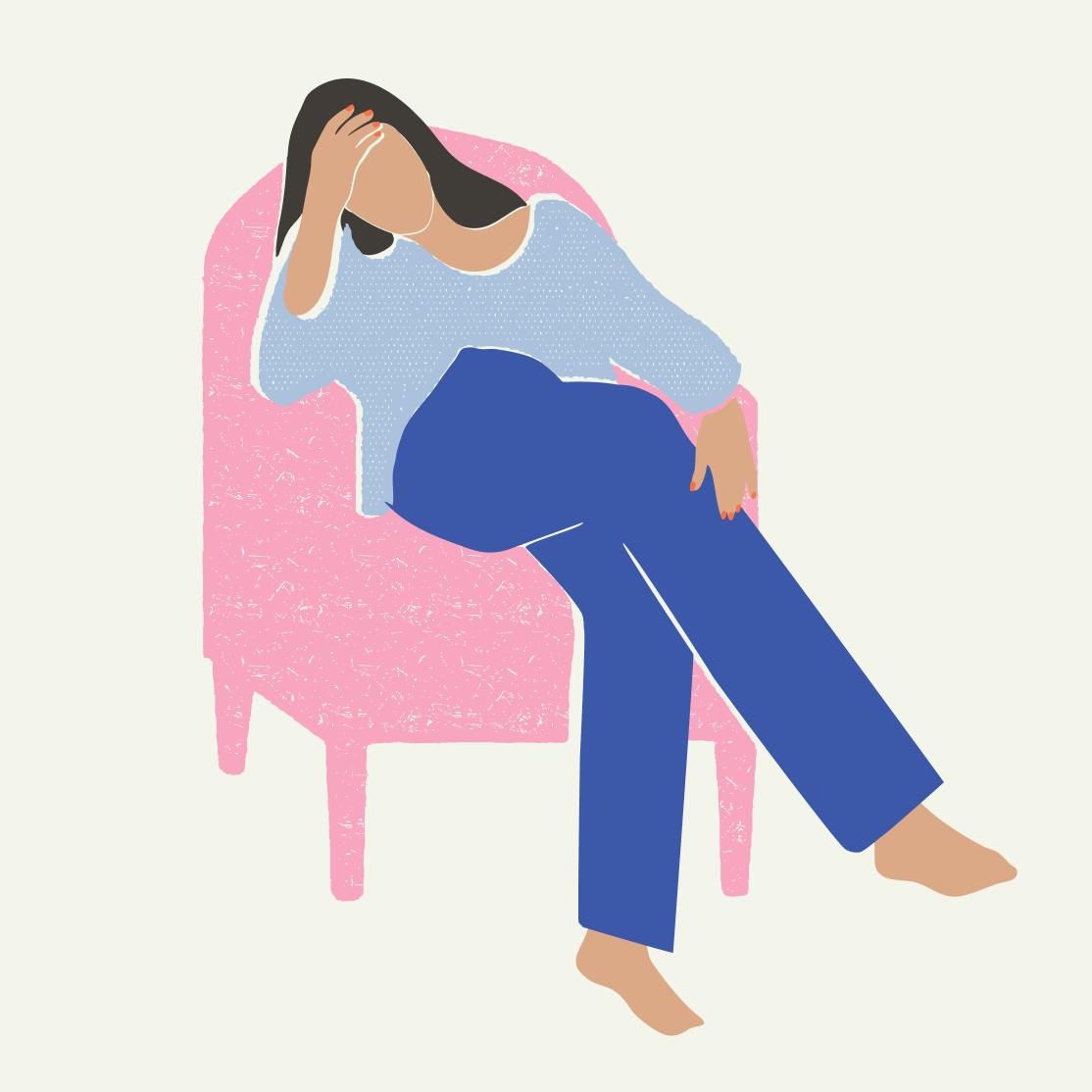Menopause and brain fog often go hand in hand, leaving many women feeling forgetful, distracted, and mentally sluggish. Hormonal fluctuations, particularly in estrogen and progesterone, can impact cognitive function, making concentration and memory more challenging. On top of that, stress, sleep problems, and mood swings can make things worse. Fortunately, there are plenty of ways to fight back against brain fog and get your mental clarity back, whether through hormones, lifestyle changes, or stress management.
All of us forget our keys or where we parked the car from time to time. And who hasn’t come up short for someone’s name at a cocktail party? Little bouts of forgetfulness are only human, but when they become more common, like losing your train of thought in the middle of a sentence or walking into a room and forgetting what you came for, it can start to feel confusing, frustrating, and worrisome.
The first thing to know: It’s absolutely normal for women during the menopause transition to experience some brain fog, which is why the term “menopause brain” has gained traction recently. Understanding the connection between menopause and brain fog can help you make sense of what’s going on. Hormonal fluctuations play a key role, along with other menopause symptoms and stressors associated with midlife that contribute significantly to mental fuzziness and difficulty concentrating.
Brain fog is a common concern among Midi patients, second only to hot flashes. “Many women, including myself, experience brain fog when they reach midlife and fear it could be the onset of dementia,” says Joanna Strober, CEO and co-founder at Midi Health. “I was quite convinced in my mid-40s that I was developing Alzheimer’s. For me, once I started taking hormone replacement therapy, the brain fog and forgetfulness went away.”
At Midi, we know how positive a woman's menopause experience can be when she works with a healthcare provider who takes her symptoms seriously. Midi clinicians are trained menopause specialists who can help you understand the “why” behind physical and psychological changes, including brain fog, and can offer a range of solutions, including prescription medications, supplements, and lifestyle coaching.
Read on to learn more about the connection between menopause and brain fog—and what you can do to restore your mental sharpness.
How Hormonal Changes Contribute to Brain Fog
While you might think that estrogen and other female sex hormones, like progesterone, only influence your reproductive system, that couldn’t be further from the truth. These hormones, particularly estrogen, interact with nearly every system and organ in your body. So it’s no surprise that hormonal chaos impacts everything from your sleep, to your mood, to your brain function.
The primary factor contributing to brain fog during the menopause transition is the fluctuation of hormonal levels, specifically estrogen and progesterone. These hormones play a significant role in maintaining cognitive function, including memory and attention. Estrogen promotes activity in an area of the brain associated with learning and memory formation called the hippocampus. As you progress towards menopause, the ovaries produce fewer hormones, leading to an imbalance and decline that can impact cognitive abilities.
In fact, poor concentration and difficulty remembering details—losing names, appointment times, common words—affects around 60 percent of women going through menopause.
Every woman’s experience of brain fog is unique. To get personalized recommendations based on your symptoms and health history, you can book a virtual visit with a menopause specialist through a platform like Midi.
Stress, Sleep, and Mood: How They All Contribute to Brain Fog During the Menopause Transition
Here’s the thing about midlife: There’s a lot being thrown at you at once. Not only are you dealing with the jagged decline in key hormones, but you may also have to contend with a variety of other stressors, including juggling more demands at work and at home. This, in turn, can affect how well you’re sleeping and how emotionally stable you feel.
“Sleep disturbances, stress, and mood changes are common among menopausal women, and they each can adversely affect overall brain health,” explains Mindy Goldman, MD, Chief Clinical Officer at Midi Health.
Chronic Stress
We know that cognitive function suffers with chronic stress in particular. Women in their 40s and 50s often find themselves in the so-called sandwich generation, balancing the responsibilities of raising children while simultaneously dealing with the challenges of caring for aging parents, often at an important stage of their careers. Of course this kind of constant stress can intensify symptoms and overload working memory, making frustrating lapses and difficulty concentrating more likely.
Sleep Problems
Women in perimenopause often experience disruptions in sleep patterns, which can exacerbate cognitive symptoms. Hot flashes, night sweats, heavy and unpredictable periods, and even midlife weight gain can lead to disrupted sleep.
Sleep is crucial for cognitive function, and the cumulative impact of sleep disturbances can deepen the brain fog experienced during perimenopause and beyond. So addressing and managing sleep issues is one important part of the puzzle when it comes to alleviating cognitive symptoms.
Mood Changes
As many as 70 percent of women experience mood fluctuations during the menopause transition. It's also a time when depression and anxiety may appear or worsen. This makes sense when you understand how interconnected your hormones and neurotransmitters are. Fluctuating and declining estrogen during the menopause transition may interfere with the normal output of serotonin and norepinephrine, which are helpful in stabilizing mood and energy. Additionally, less estrogen also means fewer serotonin receptors are produced, dimming its mood-boosting benefits.
It’s also not surprising that mood disorders like depression and anxiety can make it harder to focus and think clearly, regardless of gender or life stage.
Your physical and emotional health are closely intertwined, so it’s crucial that you take care of both through menopause and beyond. And you don’t have to go it alone. Talk to your healthcare provider or a Midi clinician about how you can better manage your mind-body symptoms.
How HRT Can Help Ease Brain Fog
Hormone replacement therapy (HRT) has reemerged as a significant intervention to manage the hormonal fluctuations of perimenopause, offering potential relief to women experiencing cognitive challenges during this phase.
The name is a bit misleading—you’re not replacing any hormones in your body as much as you’re supplementing them as they decline. Your doctor will prescribe supplemental estrogen and progesterone to help ease the symptoms, including brain fog, caused by hormonal fluctuations (women who have had their uterus removed do not require progesterone). HRT takes many forms, including a patch, pill, cream or gel, and should be personalized to your health history and symptoms.
Supplementing these hormones can positively influence neurotransmitter systems, enhancing cognitive function. “There are a lot of potential direct effects from estrogen on brain health that we are beginning to understand as well as many secondary and indirect effects,” says Dr. Goldman. In fact, research suggests that women receiving HRT may experience improvements in memory, attention, and overall mental clarity during perimenopause and beyond. There’s also some evidence that addressing estrogen levels at midlife may protect the brain long term from cognitive disease.
Talk to your healthcare provider or book a virtual visit with a menopause specialist through a platform like Midi before starting HRT to ensure it’s the right choice for you. Midi offers both hormonal and non-hormonal treatments, and 89% of patients report improvement in brain fog and memory lapses within five months.
Other Solutions to Fight Brain Fog Through Menopause
HRT is one possible solution to treat brain fog during the menopause transition, but it isn’t the only option. There are also simple lifestyle changes that can have a significant impact, for example:
- Eat well: A diet rich in leafy greens and healthy fats can help keep your mind strong. Focus on consuming more berries, nuts, beans, olive oil, and leafy greens. These Mediterranean and MIND diet staples have been shown to lower your risk of cognitive decline.
- Move more: Walking, weight lifting, and stretching all count. A number of studies have shown that physical activity creates new brain cells and has a protective effect against memory loss.
- Keep learning: Challenge your brain in new ways, like doing crossword puzzles or tackling a new language. Even taking a new route home from work (without using your GPS) can help flex your memory muscles, according to research.
- Prioritize sleep: Aim for seven to eight hours of sleep each night. Regular sleep has a protective effect on the brain. If you’re struggling to fall or stay asleep, creating a consistent sleep routine can help prep your body for bed.
- Keep stress in check: There’s no way to totally avoid stress, but finding ways to better manage it can help you think more clearly. Find a regular stress-relief practice that works for you, whether that’s journaling, meditating, or a sweaty spin class.
- Make time for friends: Research shows that social isolation can negatively impact cognitive function. Staying connected to friends and family is proven to keep your mind sharp.
- Take care: Talk to your doctor about other risk factors for cognitive decline that are within your control. Maintain a healthy weight, manage chronic conditions like diabetes and hypertension, and quit unhealthy habits like smoking.
Test Your Cognitive Function
For the vast majority of women, the brain fog experienced during the menopause transition is temporary and resolves eventually over time, but it’s important to take all cognitive concerns seriously. If you are experiencing brain fog, you can complete a brief assessment with a Midi clinician to measure your cognitive function.
The cognitive assessment that Midi uses is Symbol Match by Neurotrack, which has been developing digital cognitive assessments for more than a decade. The assessment is a quick exercise you can do at home on a smartphone, tablet, or computer, and it can detect cognitive impairment in about three minutes. Your result is based on the speed and accuracy of your answers compared to those of other women your age.
Neurotrack, which has published more than 25 peer-reviewed papers, recommends Symbol Match as an initial assessment because it engages different areas of the brain, and engages processing speed, as well as executive function and working memory. This makes it highly sensitive to subtle changes in brain function.
Depending on your score, you may be referred to providers who can perform additional evaluations. In most cases, Midi can help you manage and alleviate the impact of brain fog and other troublesome symptoms, promoting overall well-being through perimenopause, menopause, and beyond.
The Takeaway
- Brain fog is a common symptom of menopause, primarily caused by hormonal fluctuations, especially in estrogen and progesterone, which affect cognitive function.
- Stress, sleep disturbances, and mood changes further contribute to brain fog, as they can impact concentration and memory.
- Lifestyle changes, such as regular physical activity, a balanced diet, adequate sleep, and stress management, can help alleviate symptoms of brain fog.
- Hormone replacement therapy (HRT) is one option to address brain fog, but other solutions like cognitive exercises and lifestyle adjustments are also effective.
- Consulting with a menopause specialist can provide personalized care and strategies to manage brain fog and other menopause-related symptoms.
If you’re in perimenopause or menopause and want guidance from clinicians who specialize in women’s midlife health, book a virtual visit with Midi today.
Hormonal change is at the root of dozens of symptoms women experience in the years before and after their period stops.
Our trained menopause specialists can help you connect the dots to guide you towards safe, effective solutions.
Whether you need personalized guidance or a prescription routine to tackle symptoms—including brain fog, hot flashes, sleep trouble, mood swings, and weight gain—we’ve got you covered. Learn more here.
Midi’s mission is to revolutionize healthcare for women at midlife, wherever they live and whatever their health story. We believe that starts with education, to help all of us understand our always-changing bodies and health needs. Our core values guide everything we do, including standards that ensure the quality and trustworthiness of our content and editorial processes. We’re committed to providing information that is up-to-date, accurate, and relies on evidence-based research and peer-reviewed journals. For more details on our editorial process, see here.
 Tabitha Wilson
Tabitha Wilson



